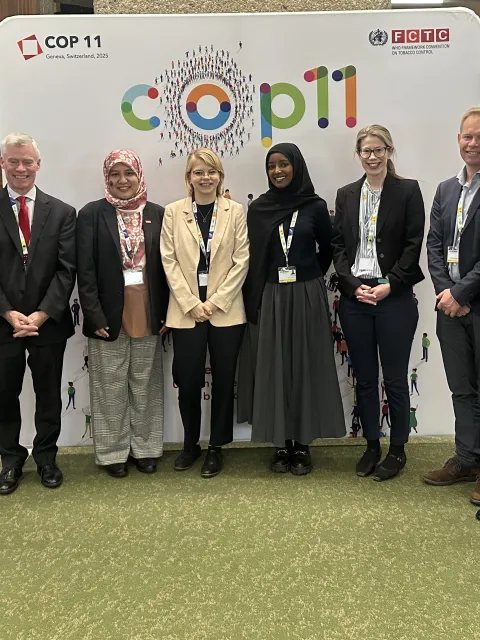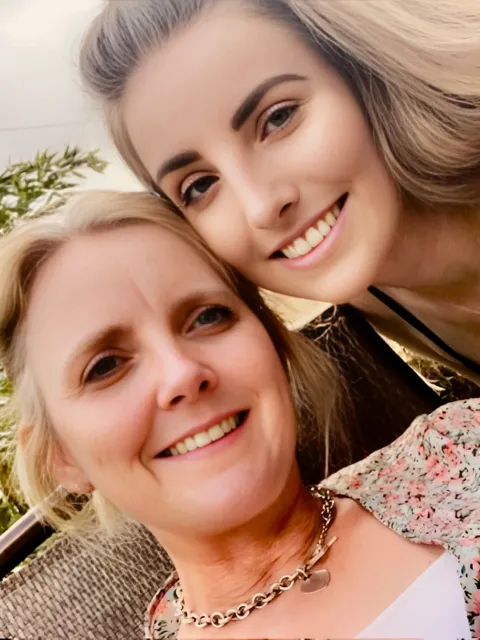UICC releases a handbook to support civil society organisations on breast cancer advocacy
With breast cancer now the most common cancer among women worldwide, the handbook provides practical tools and strategies to influence national policies and reduce mortality rates, across different resource settings.

HIGHLIGHTS
-
UICC’s breast cancer advocacy handbook supports organisations with practical tools, such as crafting advocacy messages, creating culturally informed strategies, and using real-time data to support policy changes, notably to improve early detection and reduce global breast cancer mortality.
-
The handbook guides advocates on how to build coalitions, and emphasises the value of these collaborations to maximise impact across all settings.
-
It highlights advocacy wins by UICC members, such as Brazil’s 30-day diagnosis law and Rwanda’s policy improvements resulting in improved referral of breast cancer cases, showcasing successful advocacy strategies worldwide.
-
The handbook is unique in aligning with, and enhancing, WHO’s Global Breast Cancer Initiative, which aims to cut global breast cancer mortality by 2.5% annually until 2040, supporting organisations to apply this strategic framework to national advocacy efforts.
There has been significant progress in breast cancer survival rates in recent decades, driven by the dedicated efforts of a vibrant global breast cancer community, which stands out as a powerful example of how collective action and awareness can drive real change. Early detection and screening protocols and technologies are making it easier to diagnose disease at an earlier stage, and improved treatments are increasing not only the chances of survival but also the quality of life of patients.
Despite progress, late-stage diagnoses, limited access to treatment and a lack of information regarding early detection and effective therapies, where they exist, lead to higher rates of death due to breast cancer. This is particularly true in low and middle-income settings and among disadvantaged populations.
UICC’s new breast cancer advocacy handbook aims to guide and inspire cancer organisations and advocates in mobilising governments and organisations to prioritise breast cancer in their funding and policy plans, driving progress to reduce the national breast cancer burden.
The handbook builds upon a series of existing resources developed as part of UICC’s Cancer Advocates programme, to support civil society in their advocacy efforts, including an overarching advocacy toolkit and a cervical cancer advocacy handbook.
The new breast cancer advocacy handbook is aligned with, and builds upon, the World Health Organization’s Global Breast Cancer Initiative (GBCI) — and has been designed to support organisations to translate this strategic framework into national advocacy efforts – in order to achieve this initiative’s ambitious goal of reducing global breast cancer mortality by 2.5% each year through 2040. Meeting this target could prevent an estimated 2.5 million deaths by that time, underscoring the handbook’s crucial role in advancing the GBCI’s mission.
“Civil society organisations have a critical role to play in driving meaningful action. In particular, strategic and coordinated advocacy efforts are key to raising awareness and getting new legislation and policies adopted to enhance the availability of and access to early detection services, timely diagnosis, and comprehensive treatment.”
– Sabrina Zucchello, Senior Manager, Capacity Building, UICC – leading UICC’s Breast Cancer programme.
Without urgent and coordinated action, the global burden of breast cancer is expected to escalate to more than 800,000 deaths annually by 2030 (IARC, Globocan 2022), with most of these deaths occurring in lower-income countries.
“UICC is delighted to release this dedicated handbook for breast cancer advocacy, developed and informed by our member organisations, to further support civil society organisations in implementing effective advocacy efforts aimed at reducing the breast cancer burden within their communities. Building on the foundational learning available through some of our other resources, this handbook serves as a useful guide to adapt these principles in advocacy to breast cancer specifically, and the GBCI.”
– Rosanne Lamplough, Senior Manager, Capacity Building, UICC – leading UICC’s Cancer Advocates programme.
Disparities in survival rates between high-income and lower-income countries are considerable: over 90% of women survive breast cancer in high-income countries, while survival rates drop to 66% in India and just 40% in South Africa.
UICC’s handbook includes a section dedicated to the importance of building coalitions, outlining the key partners and skills needed to inform and strengthen advocacy efforts. The handbook also focuses on planning national advocacy strategies, offering practical tools and strategies to assess the socio-political context and spotlighting successful advocacy wins by CSOs in different settings. These have been made possible by the tireless efforts of UICC members around the world, and highlight the importance of incorporating the voices of those with lived experience.
FEMAMA, a breast cancer advocacy group in Brazil, successfully lobbied for the enactment of the 30-day diagnosis law. This law, passed in 2019, mandates that breast cancer patients in Brazil’s public healthcare system receive a definitive diagnosis within 30 days of presenting symptoms. FEMAMA’s role in the campaign involved policy advocacy, raising public awareness, and collaborating with lawmakers to bring about this legislative change.
Rwanda Cancer Relief worked with the Ministry of Health to align national health policies with improved breast cancer detection and treatment efforts. This collaboration led to the development of training programmes for healthcare providers, enhancing the referral processes for breast cancer cases. By focusing on evidence-based research and policy alignment, Rwanda Cancer Relief successfully advocated for systemic changes that improved healthcare access for breast cancer patients.
In Tajikistan, NGO Avesto addressed the issue of treatment abandonment in Tajikistan, where many breast cancer patients could not afford chemotherapy. The organisation calculated the cost of treatment and worked with the Ministry of Health to demonstrate the affordability of generic drugs. Their advocacy efforts led to national health funding being allocated for chemotherapy treatment and collaboration with humanitarian assistance programmes to procure oncology medications.
The third section of the handbook provides guidance on crafting effective advocacy messages, offering an illustrative example of a successful campaign for access to breast cancer treatment.
Tailoring advocacy efforts to particular cultural contexts is essential to success. UICC’s Breast Cancer Advocacy handbook encourages advocates to assess their local healthcare systems, identify gaps, and focus their efforts on achievable goals.
The handbook includes examples of advocacy asks, such as: the establishment of national cancer registries to better understand the country’s cancer burden; targeted and resource-efficient national cancer control planning; patient navigation programmes; survivorship care; and the engagement of people with lived experience to inform policies, services and health systems.
The handbook also provides an overview of monitoring, evaluation, and learning to ensure ongoing progress, and directs readers to a library of additional resources to support members. It is part of a larger portfolio of resources on breast cancer, developed as part of UICC’s Breast Cancer programme, including a recently launched online course providing foundational knowledge on the strategies that national programme managers, policy makers and multisectoral actors should follow, aligned with the GBCI, and developed in collaboration with WHO.
French and Spanish versions of the handbook will be available by the end of December 2024 via the link.
The handbook was made possible through the support of UICC’s Breast Cancer programme partners.
Last update
Wednesday 04 December 2024
